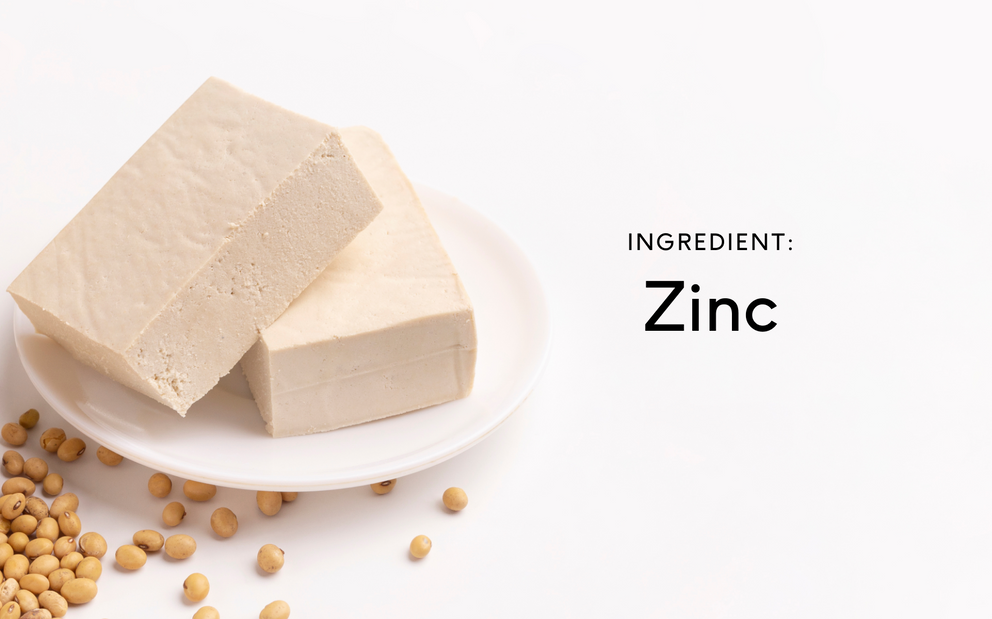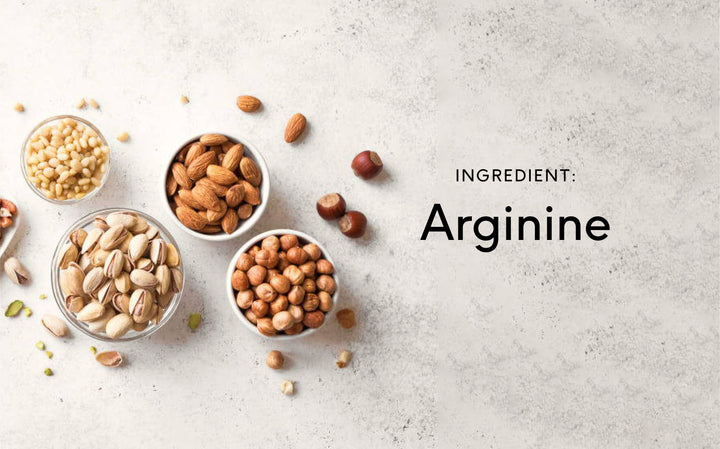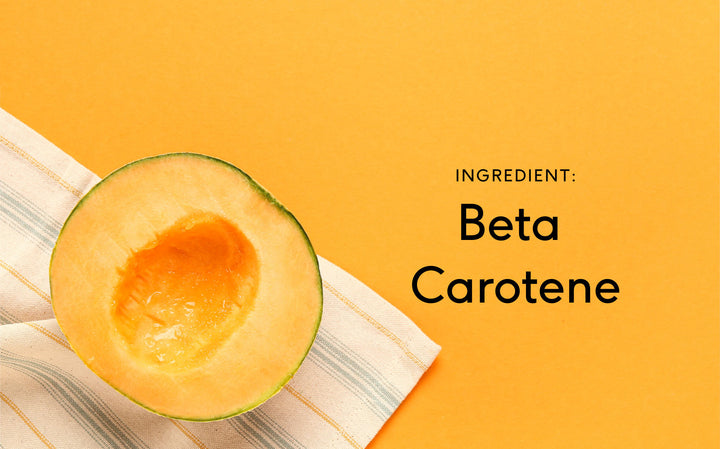Learn About Zinc in 5 Minutes
Table of contents

What is zinc?
Zinc is an essential mineral required for the activity of over 100 enzymes, and it also plays an important role in childhood development, your sense of smell, immune system, and dozens of other processes.
- Keeps your immune system running smoothly to prevent illness;
- Your body uses zinc to stimulate enzyme production in more than 300 separate ways;
- Improves protein production and skin health;
- Helps you heal faster from wounds;
- Has profound anti-inflammatory effects that reduce your risk of disease;
- May fight back against OCD and depression
Why we love zinc
Your body doesn’t produce zinc, which means you need to ingest this mineral to protect your health. Without enough zinc in your body, hundreds of different nerve, metabolism, and digestive enzymes will stop working, and your health will deteriorate.
Since we understand how important this incredible mineral is to your health, Feel Multivitamin includes 12.5mg of Zinc, 125% of your daily recommended intake.
When you take Feel once per day, you can rest easy knowing that your body has enough zinc to keep your immune system, skin, and other tissues healthy. Since zinc also improves your senses of smell and taste, ingesting zinc every day will even make your experience of being alive more enjoyable.
Unbelievable benefits of zinc
To date, more than 300 studies have been conducted to learn more about the benefits of zinc. This exhaustive research has uncovered the following benefits:
Neurological benefits
A study found that zinc supplementation reduced the symptoms of obsessive compulsive disorder (OCD). Zinc deficiency can cause anorexia, and research indicates that oral zinc consumption stimulates appetite.
Zinc supplementation appears to reduce the symptoms of depression, and making sure you get enough zinc in your diet also improves the effectiveness of selective serotonin re-uptake inhibitors (SSRIs), which are common anti-depression drugs. Zinc may also improve your ability to learn new things.
Zinc is thought to have great neurological benefits, which is why we've included 20mg of Zinc in Feel Focus, 200% of your daily recommended intake.
Cardiovascular benefits
Zinc deficiency increases your risk of atherosclerosis, and zinc supplementation reduces your risk of this artery-clogging disease. Research indicates that zinc achieves this effect by reducing the levels of LDL-C in your blood, which is one of the most dangerous forms of cholesterol.
Tissue health benefits
Many hospitals use zinc to treat ulcers, burns, and other skin lesions. Zinc is also essential to collagen synthesis, which means that zinc supplementation can improve the collagen levels in your skin and other tissues. Collagen is the most prevalent protein in your body, and without it, your tissues can’t thrive.
Zinc can speed up wound healing. A study found that subjects with diabetic foot ulcers who were administered zinc experienced impressive ulcer size reductions. If you have enough zinc in your system, you have a lesser risk of developing acne, which means that this condition won’t harm your self-confidence.
Anti-inflammatory benefits
Oxidative stress causes inflammation, and zinc reduces oxidative stress. One study found that adults who supplemented with zinc suffered from less inflammation. Since inflammation plays a key role in the genesis and progression of many diseases, zinc supplementation may protect you from a variety of dangerous conditions.
Zinc is thought to make an important contribution to weight loss due to its involvement in carbohydrate metabolism and support of healthy inflammatory pathways. Feel Meal Replacement includes 3mg of Zinc, perfect for supporting your weight loss goals.
Immune system benefits
Zinc might reduce the duration of the common cold better than vitamin C. A study found that ingesting about 80mg of zinc per day reduced the duration of cold symptoms by 33%. Zinc also reduces the risk of infection in adults.
We've included 20mg of Zinc in Feel Immunity, essential for supporting your immune system all year long.
Other benefits
Research indicates that zinc may help prevent a variety of age-related illnesses.
Is zinc water-soluble or fat-soluble?
While zinc itself is inherently insoluble in either water or fat, combining zinc with citric acid to make zinc citrate makes this mineral somewhat water-soluble. Therefore, your body absorbs zinc citrate relatively quickly, and this substance is also rapidly excreted.
Where can zinc be found naturally?
Zinc is plentiful in oysters, beef, chicken, and other meat products, and this substance is also available in certain types of beans and nuts. In addition, many cereals and grains have been fortified with zinc.
5 foods/drinks containing zinc
1. Oysters 500% DV per 85g
2. Wild rice 20% DV per 1 cup
3. Tofu 36% DV per 1 cup
4. Lentils 23% DV per 1 cup
5. Pumpkin seeds 15% DV per 28g
What is the recommended daily intake for zinc?
According to the Office of Dietary Supplements (ODS), which is a branch of the National Institutes of Health (NIH), the recommended daily amount (RDA) of zinc for adult males is 11mcg and the RDA for adult females is 8mcg. Adult females should consume 11mcg of zinc per day when pregnant and 11mcg of this nutrient when lactating.
Feel Pregnancy contains 20mg of chelated Zinc, a crucial mineral for fertility and reproductive health and essential for supporting the healthy growth and development of your baby.
What to consume to get a full daily dose of zinc?
Oysters - around 23g
Wild rice- around 5 cups
Firm tofu - around 3 cups
Lentils - around 4 cups
Pumpkin seeds - around 187g
Can you absorb enough of zinc from food?
Getting enough zinc from food is hard for people who don’t eat animal products. While this substance is plentiful in seafood, it isn’t very highly concentrated in plant based foods. Therefore, you might want to supplement with zinc to make sure you get enough of this nutrient every day.
Why is zinc necessary for your body?
Zinc helps enzymatic reactions in your body occur properly, and it also promotes proper growth in fetuses and developing children. Additionally, zinc has neuroprotective benefits; this nutrient reduces the symptoms of depression, and it appears to stop obsessive-compulsive disorder (OCD). What’s more, zinc has cardiovascular, immune, and anti-inflammatory benefits as well.
Functions of zinc
Immune function: Zinc supplementation reduces the duration of cold symptoms by 33%, and it also appears to reduce the likelihood of infection.
Enzyme production: Scientists have identified over 100 enzymes that are dependent on zinc, and this mineral affects enzyme production in more than 300 distinct ways.
Childhood development: Children who don’t get enough zinc exhibit both physiological and psychological developmental defects.
Inflammation reduction: Zinc is an antioxidant, and it appears to specifically reduce the levels of inflammation throughout your body.
Symptoms of zinc deficiency
Growth Problems
The most common symptom of zinc deficiency in children is delayed or stunted growth. Deficiency in this mineral can also cause delayed sexual maturation.
Loss of appetite
Zinc deficiency can cause appetite loss, which can lead to sudden weight loss. Severe cases of zinc deficiency can also cause diarrhoea and other types of gastrointestinal distress.
Impaired Immune Function
Deficiency in zinc can cause frequent illness and increased susceptibility to infection.
How long do you need to take zinc to start experiencing its benefits?
Since zinc is water-soluble, it’s generally possible to notice improvements in zinc deficiency symptoms immediately after you start supplementing with this substance.
Consistency is key and our research recommends taking your Feel supplements for at least 3 months to allow your body to adjust and provide the desired benefits.
How long does it take for your body to digest/absorb zinc?
As a water-soluble nutrient, your body usually digests zinc relatively quickly.
How long does zinc stay in your body after you take it?
The body does not have a storage mechanism for zinc. Therefore, this nutrient is excreted from your body almost immediately after you take it, which makes it necessary to consume zinc regularly to replenish your bodily supply.
Is zinc an antioxidant?
Research indicates that zinc is a potent antioxidant. As such, this mineral fights back against the effects of free radicals within your body, protects cellular integrity, and reduces systemic inflammation.
Can you overdose on zinc?
Overdosing on zinc is called “acute overdose,” and this condition results in nausea, diarrhoea, abdominal cramps, and headaches. When you take too much zinc over an extended period of time, chronic overdose can occur. Taking too much zinc every day can interfere with your body’s absorption of other minerals, such as copper and iron, and chronic zinc overdose can even compromise the functionality of your immune system.
Does zinc dissolve, flush out, or build up in the body?
Since your body has no way of storing zinc, this mineral is flushed out of your system almost immediately.
Can you take zinc during a diet?
Taking zinc does not interfere with any dietary restrictions.
Are there synthetic forms of zinc?
As a base metal, it is practically impossible to synthesise zinc in a lab. Therefore, all forms of zinc bonded with digestible substances, such as zinc citrate, are natural and not synthetic.
Why might synthetic forms of zinc be better?
The only hypothetical situation in which synthetic zinc might be superior is if the world’s natural zinc supplies were depleted.
Absorption rate of synthetic zinc
The absorption rate of zinc, which is inherently unabsorbable, depends on the compound with which it is paired. Synthetic zinc paired with citric acid would have the same absorption rate as natural zinc citrate.
Why might natural forms of zinc be better?
The only available forms of dietary zinc are natural.
How to take zinc
You can get zinc from the food you eat, and you can also take this mineral in supplement form.
Zinc trends in medicine
For years scientists have been aware that deficiency in zinc can lead to serious medical complications. In 2019 however, medical researchers discovered for the first time that zinc deficiency can cause hypertension. It still isn’t clear whether zinc deficiency causes high blood pressure or only exacerbates hypertension. Whatever the case may be, these results simply remind us how important it is to consume plenty of bioavailable zinc every day.
Why everyone should be taking WeAreFeel supplements
While some essential minerals, such as iron, only have a few basic functions, your body uses zinc for hundreds of different processes. Without the right amounts of zinc in your diet, your overall health can dramatically worsen. Unfortunately, it simply isn’t practical for most people to consume an oyster a day or munch on pumpkin seeds at every waking moment.
That’s why the easiest solution might be to get your daily zinc dosage by taking Feel. Here at WeAreFeel, we developed our revolutionary multivitamin with the busy professionals in mind. We understand how hard it often is to fit a healthy meal into your busy schedule. With Feel, you never have to worry about becoming deficient in zinc again; simply take a scientifically formulated capsule daily and feel better without even trying!
Here’s the Proof
- Evaluation of oral zinc sulfate effect on obsessive-compulsive disorder: a randomised placebo-controlled clinical trial.
- Zinc monotherapy increases serum brain-derived neurotrophic factor (BDNF) levels and decreases depressive symptoms in overweight or obese subjects: a double-blind, randomised, placebo-controlled trial.
- Anti-atherogenic properties of zinc: implications in endothelial cell metabolism.
- Pressure ulcers: Current understanding and newer modalities of treatment
- The effects of zinc supplementation on wound healing and metabolic status in patients with diabetic foot ulcer: A randomised, double-blind, placebo-controlled trial.
- Acne: evolution of the clinical practice and therapeutic management of acne between 1996 and 2000.
- Cytokines in the Pathogenesis of Rheumatoid Arthritis and Collagen-Induced Arthritis
- Zinc lozenges and the common cold: a meta-analysis comparing zinc acetate and zinc gluconate, and the role of zinc dosage.
- Lutein + zeaxanthin and omega-3 fatty acids for age-related macular degeneration: the Age-Related Eye Disease Study 2 (AREDS2) randomised clinical trial.




















































 Back
Back





